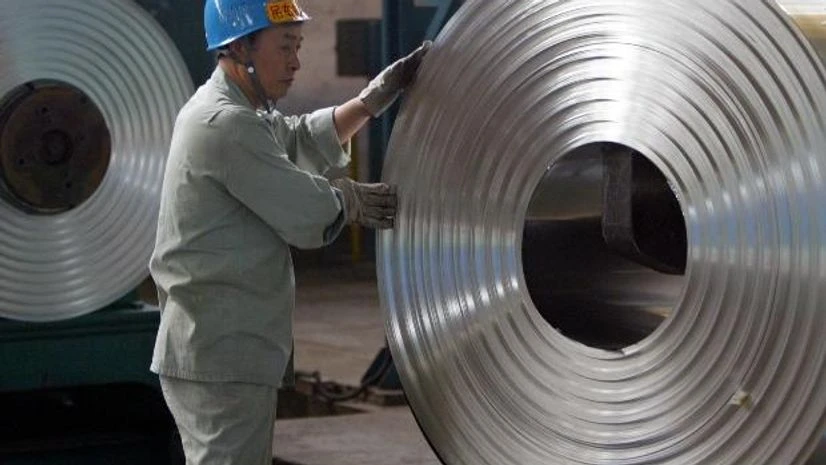Top Chinese steelmaker China Baowu Steel Group is in talks to take over rival Magang Group, three sources familiar with the discussions said, a deal that would help entrench the nation's position as a serious competitor in global steel markets.
The mega-marriage would sharply narrow Baowu's gap with top-ranked international producer ArcelorMittal, and would be a major step in Beijing's drive to consolidate its bloated steel industry. Baowu and Magang's combined steel output last year surpassed total U.S. production.
It would mark the next big takeover in the country's steel sector after Baowu, the world's No. 2 steelmaker, was created by Baosteel Group's 2016 acquisition of Wuhan Iron and Steel that valued the latter at about 3 billion yuan ($438 million).
The talks are yet to move beyond a preliminary stage, said a source with direct knowledge of the matter, declining to be identified as details have not been made public. The source did not indicate possible pricing.
"(A deal) would be very reasonable and normal. After all, the two companies are geographically close," the source said.
Also Read
"It would be easy ... to collaborate and their products are complementary."
Baowu denied the merger talks with Magang, state-owned Shanghai Securities News reported, citing Baowu's public relations team, after Reuters published the story. Magang's public relations team did not answer phone calls from Reuters.
Magang is headquartered in Maanshan city in China's eastern Anhui province, about four hours drive from Shanghai, where Baowu Group is based.
Baowu mainly churns out flat steel products used in manufacturing, while Magang's output is split between flat and long steel products, the latter used in construction.
Baowu in 2017 produced 65.39 million tonnes of steel and Magang made 19.71 million tonnes. Their combined output of 85.1 million tonnes would be just 11.9 million tonnes below ArcelorMittal's production last year and compares to the U.S. total of 81.6 million tonnes.
It would also put Baowu closer to its plan to expand its capacity to 100 million tonnes by 2021 from around 70 million tonnes currently.
"The two companies are in talks for consolidation," said a high-level official overseeing China's steel industry, who spoke on condition of anonymity.
"I think it's a good thing for both companies - that's two giants combining. They haven't reported it to the authorities yet."
Baowu had total assets worth 745.6 billion yuan at the end of 2017, while Magang's were valued at 72.2 billion yuan.
Both producers sell the bulk of their output at home, although Baoshan Iron & Steel, Baowu's listed unit, exported 3.8 million tonnes last year, about 8 percent of its total output. China is the world's top steel exporter.
OVERCAPACITY
The takeover could take a different route than the Baosteel-Wuhan union, two of the sources said. Baosteel bought Wuhan Steel at 2.56 yuan per share by issuing new shares at 4.60 yuan per share, valuing Wuhan at around 3 billion yuan.
While both Baosteel and Wuhan are state-owned enterprises, Magang is controlled by the local government of Anhui province.
"So if there is a merger, they might adopt a different strategy than the Baowu merger," said the first source, without giving further details.
Last week, Baowu, Magang, another major steelmaker and a state-backed asset management company created an asset management joint venture with total investment of 2 billion yuan, aiming to offer financial support for consolidation in the steel sector.
China aims to put 60 percent of its national steel capacity in the hands of its top 10 producers by 2020, up from a third currently.
"There's still potentially a lot of consolidation needed in the future, which in theory should help address the overcapacity situation in China," said Jeremy Platt, an analyst at British steel consultancy MEPS.
Apart from linking its big steel companies, China has been shutting small, polluting and inefficient mills to address a years-long steel glut.
Peter Poppinga, executive director at top iron ore producer Vale, told an industry conference last week that China's total steel capacity is forecast to drop to 980 million tonnes by 2018-2020 from 1.1 billion tonnes in 2015.
(Reporting by Muyu Xu in Beijing and Manolo Serapio Jr. in Manila; Editing by Joseph Radford)

)
